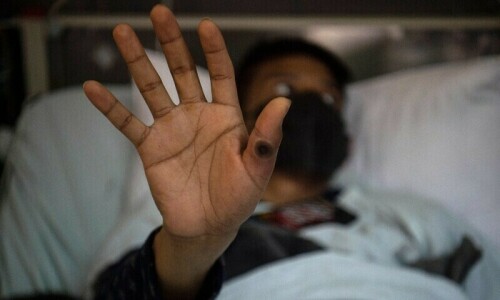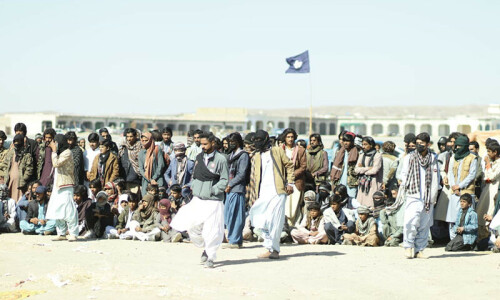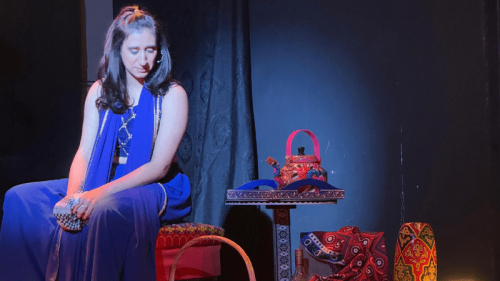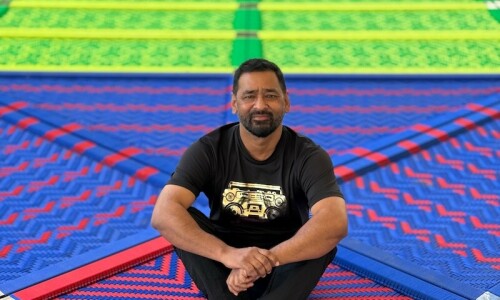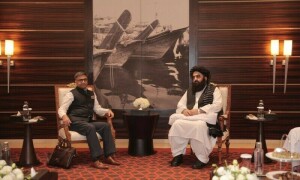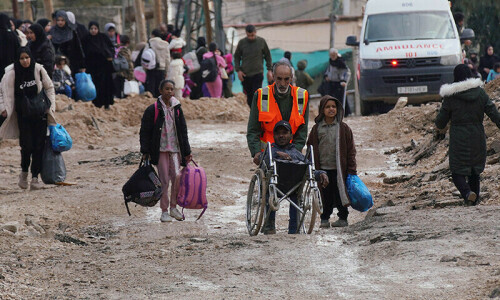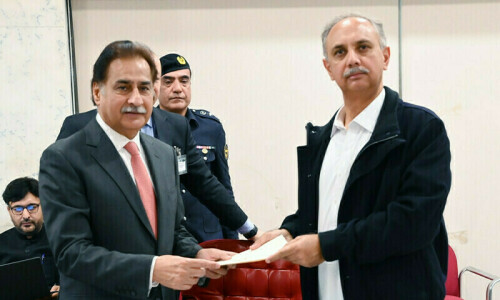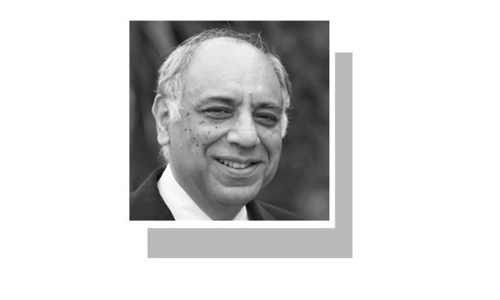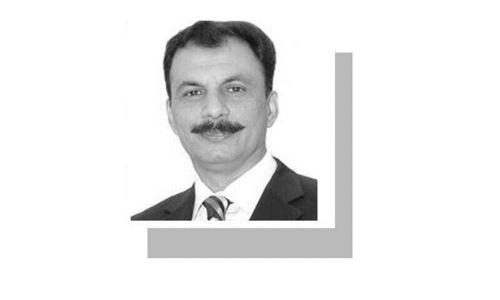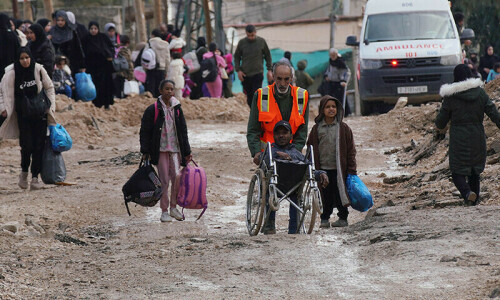
The ubiquitous violence in Pakistan has left 45,000 dead in the past decade alone. The number of injured is equally large; the number of affected households even larger. Since 1989, sectarian violence has caused the death of 4,137 individuals and has left 8,220 injured. While TV channels repeatedly telecast grizzly scenes of the dead and injured, and newspapers carry banner headlines of yesterday’s carnage, yet all is forgotten within weeks if not days. Seldom one finds the news media following up on the lives of those whose lives were shattered.
Those who are injured in terrorist violence need medication and hospitalisation. Often the victims belong to low-income households with not enough means to pay the medical bills. The government does provide free medical support, but only for the short run. The victims’ families, while grieving for the deceased, worry more about their economic survival. They are anxious about food, shelter, education and security. These are the concerns of millions in Pakistan whose family members have died in terrorist violence or those who were forced to abandon their homes and neighbourhoods when violence descended on the communities they called their own.

With millions of victims of violence in Pakistan, one would have hoped to see a concerted effort by the state and the society to address the needs of the victims. At the same time, one would have expected to see studies highlighting the needs of the survivors so that relief efforts could be better planned. Regrettably, this is not the case in Pakistan. Despite the presence of millions of direct victims of violence, only a handful of studies have tried to assess and document the physical and mental trauma faced by the families of the victims of terrorist violence.
In one such study, Yasmin Farooqi and Maria Habib analyse the psychological trauma suffered by the 120 adult survivors of a suicide bombing in Lahore. The authors discovered that “female survivors of suicide bombing reported a higher degree of anxiety, depression and stress” than their male counterparts. These findings suggest that post-traumatic stress management interventions have to be gender-sensitive in Pakistan.
The harm caused by the terrorism violence extends far beyond life and property damage. In fact, the entire social order is impacted in the communities affected by terrorist violence. Abdul Waheed and Mokbul Ahmad discovered that when husbands or fathers die in terrorist violence, the surviving females lose all autonomy since other members of the extended family take over the day-to-day decision-making. Their study of the surviving family members of the victims exposed to violence during 2005 and 2008 revealed that in 91 per cent of the cases, the surviving women were barred from any subsequent decision-making when the victim died in a terrorist attack.
Education of the children was also adversely affected. In cases where the family member died in a terrorist attack, 42 per cent of the children failed to move to the higher level, another 42 per cent received lower than usual grades, and 16 per cent of the children dropped out of school. The economic hardships resulting from the death of the breadwinner is probably the reason why the children would drop out of school. The authors observed that the average household income of the family declined from Rs. 12,104 (before the terrorist attack) to Rs. 7,518 (after the attack). At the same time, the household expenses increased after the attack resulting in an average outstanding loan of Rs. 216,250 amongst the surviving households.
Despite the government’s claims of providing financial reprieve to the surviving household, not much actually reaches the surviving family members. Many have suggested that the government should do more to offer financial and other relief to the families of the victims. The federal and provincial governments, however, face a slight resource constraint: with only a million taxpayers in the nation of 180 million, government coffers are almost always empty. After feeding the army, servicing the debt, and paying salaries of the employees, the government in Pakistan is left with little to weave a safety net that could catch those who may fall through the cracks. This creates the need for extensive philanthropy in Pakistan to ensure that citizens step up where the state is incapable of offering relief.
Shaheed Foundation is one such organisation in Pakistan that looks after the welfare of Shia victims of terrorist violence. The Foundation disburses cash directly to the victims’ families to prevent them from falling into the poverty trap. Their monthly report for October presents a breakdown of 7 million rupees disbursed to 1,304 families across Pakistan. The targeted interventions by the Shaheed Foundation and other similar relief providers are vital for those who receive the relief. However, the demand for assistance far exceeds the capacity of those who are offering help.
Pakistanis have to think afresh about how they can use philanthropy to address the harm caused by terrorist violence. Those who can donate should realise that they have a choice. The philanthropists could donate money to build even more mosques or they may donate funds to provide education, food and shelter to the millions who are fortunate to be alive, but their misfortunes have brought hunger and misery to their doorstep.

The views expressed by this blogger and in the following reader comments do not necessarily reflect the views and policies of the Dawn Media Group.



